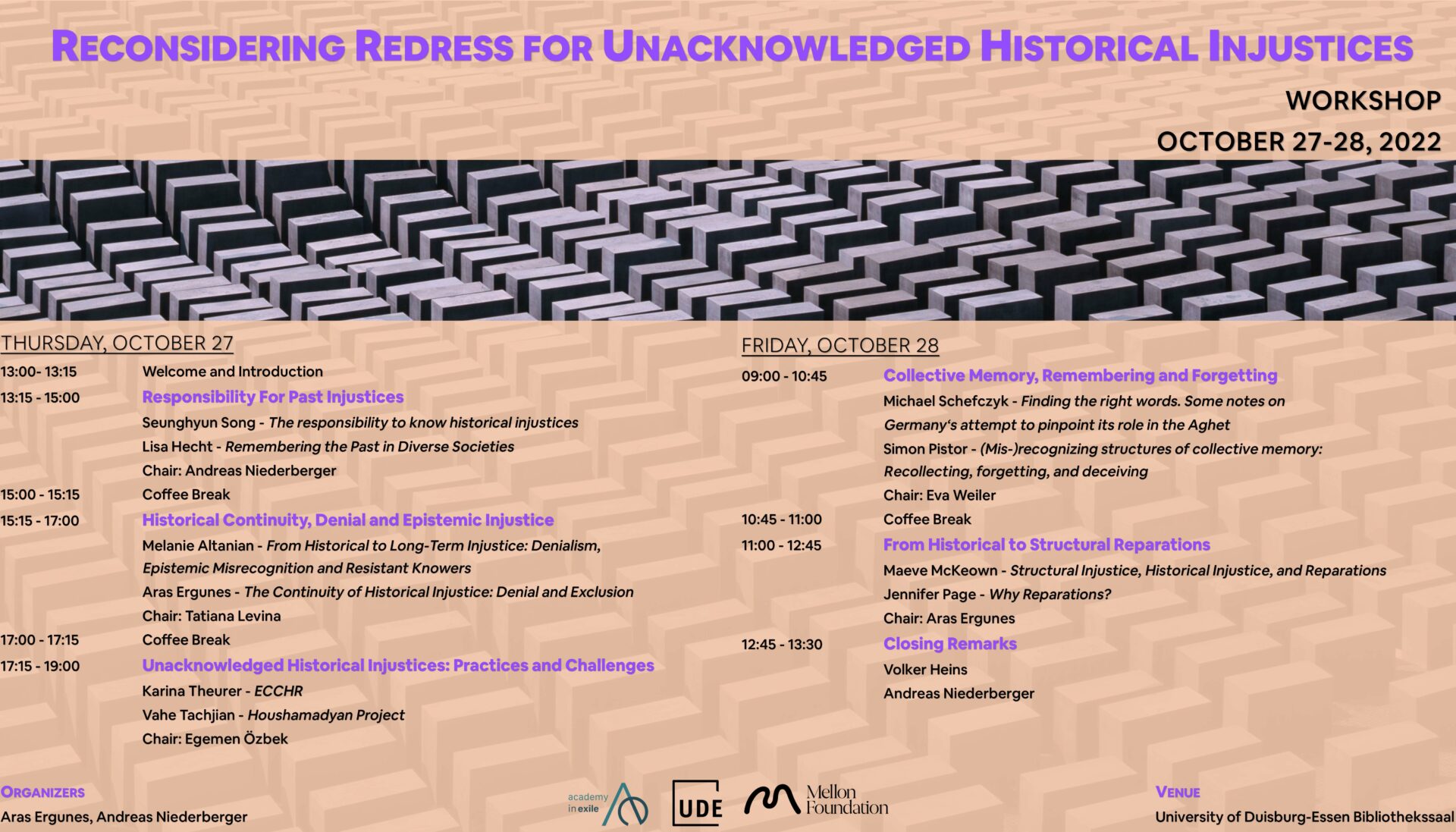International Workshop, October 27-28, 2022
Universität Duisburg-Essen
In recent decades, academic studies on historical injustice have progressed simultaneously with apology and reparation policies. These studies were inspired by the social and political struggles demanding redress of colonial injustices. Accordingly, the growing field of historical injustice studies worked within a conceptual framework for most of the cases shaped by reparation demands for historical wrongdoings. Although historical wrongdoings other than colonial injustices – such as internment or incarceration during civil war periods of the Post-Soviet States during the 1990s – have been included for theoretical study, the field still requires an expansion towards so far unacknowledged and unredressed historical wrongdoings which still and unendingly cause new injustices.
The extermination of Armenians in the Ottoman Empire during World War I which was recently recognized as genocide by the United States Government in 2021, is a good example of historical wrongdoings which have not yet been recognized by the perpetrator. Along with the Armenian Genocide, there are also other cases, such as massacres of Sinti and Roma during World War II, or the Herero and Nama genocide during the German colonial era which have not been fully recognized its victims and descendants are still demanding reparations.
This workshop aims to address the need to discuss such cases of historical wrongdoings which are not recognized officially and thus not yet in the reparation process. It also intends to bring together scholars in this field to examine the validity of existing theories on justice and reparation for yet unrecognized historical cases. We seek to build upon the current expertise in the field to develop nuanced ways of rethinking the concept of historical injustice and to expand the scope of core questions of the field in relation to such cases.

